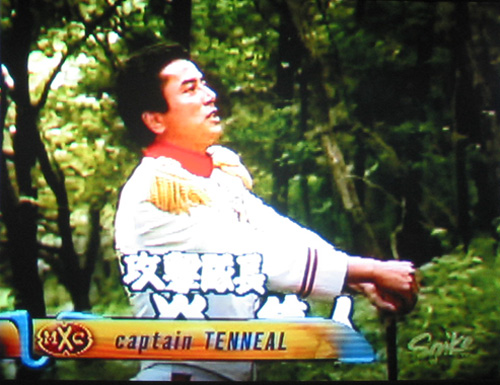I live on a high floor of an art deco tower facing a busy Brooklyn street. The acoustics of the building and the street are such that I can sometimes hear what’s going on in the street right from my desk. Once I heard the sounds of a minor fender bender followed by an angry exchange unpleasantness that was escalating into some creative Russian profanity. The driver who rammed the other car was pretty unapologetic and criticized the driving skills of the one who got rammed. Then followed the exchange that made me laugh out loud – the driver who got rammed said – “the way you behave, man, you must be from Odessa.” “Yes, I am,” – answered the other guy, and added – “and you still drive like a moron.”
Odessa, Ukraine, my hometown, is a very special place. It has a Bizarro mirror twin, Odessa, Texas.
Odessa is a resort town situated on the shore of the Black Sea, right across from Turkey. Culturally it’s a bit like Brooklyn (or Brooklyn is a bit like Odessa because of an almost constant infusion of Odessans) – a city with an attitude, a city where a lot of famous people are born and famous people come to live. Architecturally it’s a lot like Vienna and St. Petersburg: a city built on a grand scale (but with softer edges), by the best architects.
Odessa’s ancient past is obscure: a Greek colony, a small town controlled by Kievan Rus, the Golden Horde, various Khanates and Kaganates, and finally a Turkish fortress. Odessa’s fortunes have turned when Russian forces invaded it in late 1700s. Catherine the Great apparently wanted to fortify the newly won land, and committed the people and resources needed to make the new city of Odessa a success.
The founding fathers of Odessa were a bunch of distinguished foreigners in the service of the Russian crown: General José Pascual Domingo de Ribas y Boyons, Armand Emmanuel Sophie Septemanie du Plessis, duc de Richelieu, and Count Louis Alexandre Andrault de Langéron.
Richelieu, or the Duc, as he’s commonly known in Odessa, will forever be loved by Odessans for his accomplishments. The way I imagine the Duc is sort of like the 18th century Steve Jobs, with a reality distortion field of his own, except without being an asshole (Richelieu was known for his kindness and indifference to money). Somehow – nobody know exactly how – Richelieu got Odessa the status of a “free port“. This meant that goods could be unloaded without paying the taxes within the city limit. This brought about an unprecedented influx of wealth, which in turn fueled the building of Odessa by the best European architects in the European manner. Odessa’s opera theater is only slightly smaller than Vienna’s, and is by the same architect.
Another unique aspect of this new city was the ethnic makeup. Besides the usual for Ukrainian cities mix of Ukrainians and Russians, Odessa became a melting pot. Frenchmen, Greeks, Turks, Germans, Armenians: all rushed into Odessa. Even the Jews were allowed in, and not being limited to certain occupations or living in a ghetto. Odessa is a very Jewish town despite what the author of Everything Is Illuminated might have you believe.
I left Odessa when I was 16. I came back for a 10 day visit 15 years later.
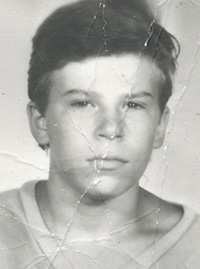
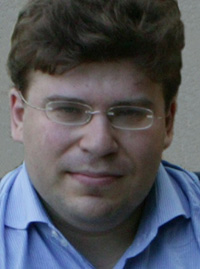
Odessa is a a city that makes you nostalgic, and I kept seeing it in my dreams. Luckily there’s a small international airport in Odessa and President Yushchenko kindly lets the holders of an American passport into the country freely, with no need for a visa.
12 hours and $1300 later I was standing in Odessa, looking for a cab. A pushy cabby was very surprised when I did not want to ride in his clean BMW and chose a cheaper and dearer to my heart filthy Soviet-vintage car.
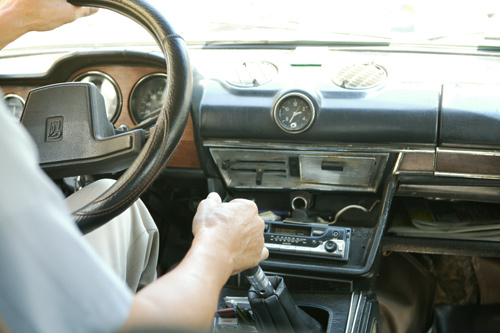
As far as hotels go, Ukraine is much more reasonable than Russia, but there are still no Marriott-like affordable and well-designed chains. There are overpriced hotels with decor that will burn your eyes out, cheaper, but scarier hotels, and apartments that you can rent which cover the gamut. Odessa has a population of about a million, but it swells to twice the size in the Summer season. Because of that there are thousands of very reasonably priced rental apartments with great amenities. Unfortunately I did not plan enough ahead, and ended up reserving a very cheap room in a brand new hotel Zirka that recently opened right in the center of the city.
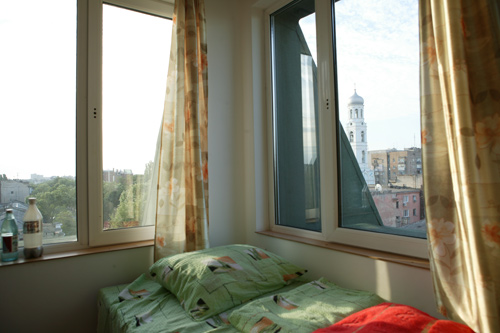
For a very reasonable $35/night I lived in a tiny-tiny, somewhat flimsily outfitted, but very clean room with a fully functioning shower, air conditioning and beautiful views, right in the historic center of Odessa.
The hotel was still being built when I lived there, and I herd later that it was becoming a bit notorious for renting the rooms at hourly rates.
As far as I’m concerned, you really can’t beat their amenities, their location, and their prices. Also, the staff was very courteous and professional. It was very quiet there during my stay – but worst case scenario – you might overhear noisy sex, from which you are not guaranteed at almost any hotel.
It’s hard to see on picture, but the towels had little dollar sign designs.
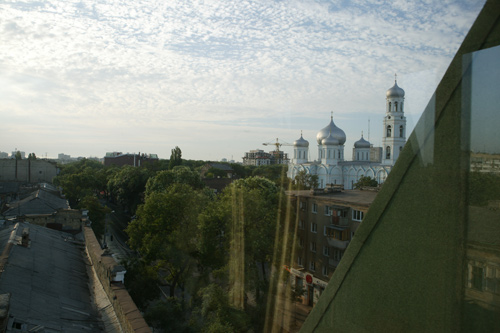
My hotel room reminded me very much of the affordable hotel room that I lived in in Japan, down to the picture of soft drinks that I took there.
In Odessa I mostly drank Borjomi, a Georgian mineral water. Borjomi, as far as I’m concerned is the tastiest mineral water in the world.
Odessa has its own mineral water, Kuyalnik, but it’s not sold in restaurants for some reason. I found a few bottles in a convenience store closer to the end of my stay. More about Kuyalnik later – I have a very special connection to it.
Apparently in Europe Diet Coke is marketed as Coca Cola Light, is sold in frosted bottles, and as far as I can tell, in a different formulation. It did taste different, and I know my cokes.
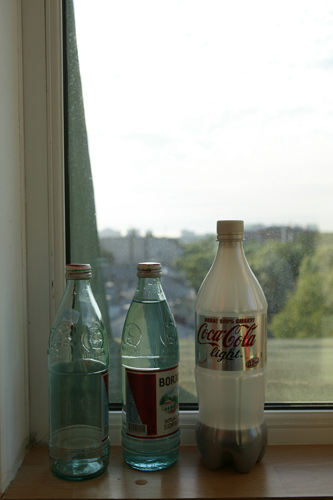
I quickly unpacked, grabbed my camera and went for a walk.
You really can’t enter the same river twice. I left Odessa when the Soviet Union was still intact. When I came back, a lot of things stayed the same.
There’s still a fountain in the City Square, the live band is still playing on Sundays and the pairs still dance.
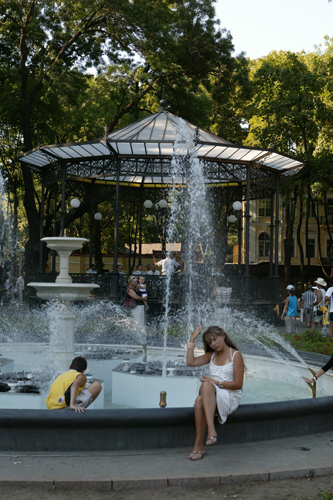
Acacia trees, the most common plant and the symbol of Odessa, are still filling the city with the aroma and sidewalks with their yellow flowers. Cleaning ladies (and men) still sweep the sidewalks with brooms made out of small branches. I brought a small jar with acacia blooms with me – the smell of nostalgia.
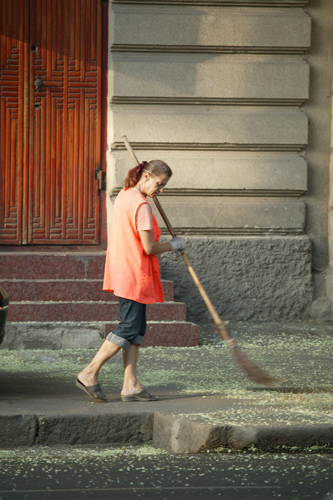
Remember that ethnic markup that I described earlier on? Well, somehow that mixing of genes resulted in the hottest women on the planet. Odessa is still the city of super hot women. This brings a large contingent of sex tourists and mail order (in this case – cash and carry) bride seekers. I was approached (probably because I was typing away on a laptop) by a most distressed gentlemen in a cafe: he could not get online. His hands were shaking. I fixed some gnarly windows crud setup options and wi-fi started working. All he cared about was getting to a dating site, and when it loaded, his hands finally stopped shaking.

Things have changed though. Odessa took on some qualities of Havana, Cuba. Historic buildings are deteriorating, old cars are kept alive way past what’s reasonable.
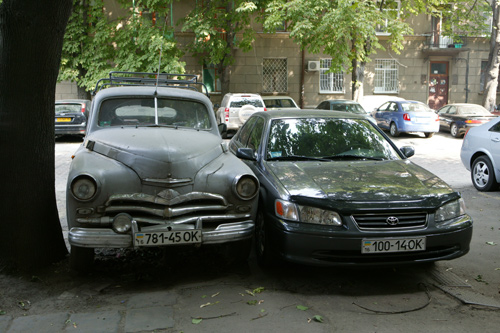
It’s not like Havana because people seem to prosper. Even the pensioners do not go hungry, there is a lot of new construction, and the rich are really, really rich. I’ve seen just about every expensive car I know in the streets, except maybe a Maybach.
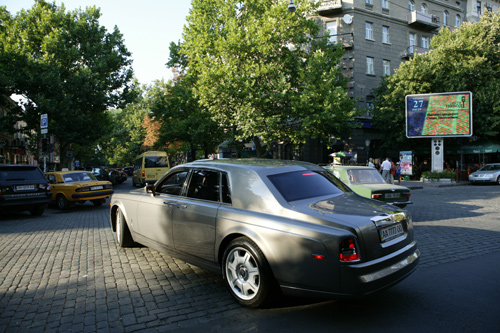
A few things about the new Ukrainian economy. The salaries are paid in US dollars, but dollars are not accepted anywhere. You can easily exchange them into hryvnas and back very easily, and the rate is somehow kept at about 5 to 1, without even having to shop around for a rate.
Real estate is amazingly expensive: for instance the apartment that my parents sold for something like $5K costs about $500K. At the same time the mortgage industry is almost non-existent.
I’m told that the government officials are amazingly corrupt, and they constitute a major portion of the upper crust. A police captain can easily become a multimillionaire, and so can just about any government bureaucrat. There’s a practice of “otkat” – kickback from a government project is rampant. High ranking policemen and bureaucrats are almost outside the law, like in India.
At the same time, even with all the corruption and bribery, the economy is pretty healthy, even without Russia’s oil.
Price-wise Odessa is not the bargain that it once was. For most things I’d estimate the cost of living at about 60-70% of Brooklyn prices. Food and rent is pretty cheap, but electronics, clothing and cars are more expensive. In particular, cars are taxed so much that they cost about 2 to 3 times more than in the US, which makes all those Rollses that I’ve seen even more impressive, and explain the Soviet-era cars.
Deadprogrammer Visits Odessa : Part II : Balconies and Yards.
